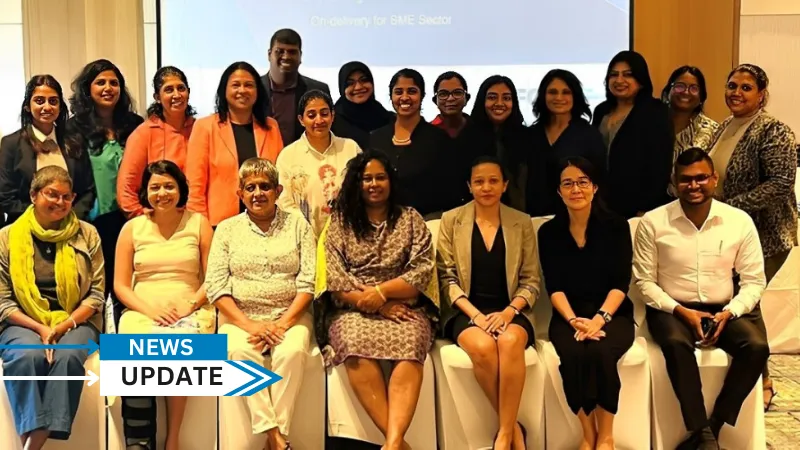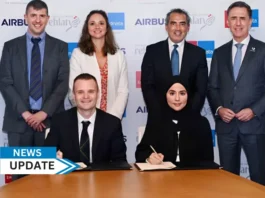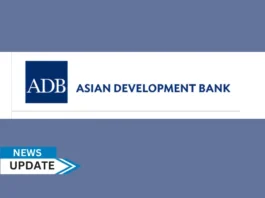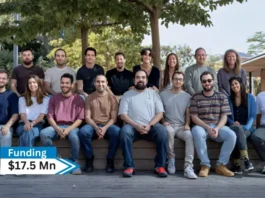

A new partnership between the International Finance Corporation (IFC), Women in Management (WIM) and Diversity Collective Lanka (DCLK) aim to empower small and medium-sized enterprises (SMEs) in Sri Lanka with the tools and knowledge needed to create safer, more respectful work environments.
Read also – TECNO Joins Forces with University of Leeds and Dar Al-Hekma University
A first-of-its-kind partnership, this program will empower WIM and DCLK Respectful Workplace practitioners to train SMEs in cultivating environments of respect and dignity, with a strong focus on combating gender-based violence and harassment (GBVH). The tailored program covers areas such as safe reporting mechanisms, prevention-focused education, and organizational accountability.
Read also – ADB to Help Modernize Power Distribution in Pakistan
Despite the significant economic contribution of SMEs – which account for approximately 52 percent of Sri Lanka’s GDP – the share of women-owned SMEs remains relatively low, at around 25 percent. While access to finance remains a key growth constraint for women-led SMEs, GBVH – which comes in many forms from physical and emotional violence to financial abuse – is another significant barrier that limits women’s productivity and hampers their active participation in the economy. Domestic violence, specifically, can severely affect the physical and emotional well-being of women, leading to absenteeism and reduced productivity.
“The economic impact of gender-based violence is profound and far-reaching. It not only affects individual lives, but also stifles broader economic stability and growth. By fostering a culture of respect and safety, businesses can improve employee well-being, enhance productivity, and contribute to broader social change,” said Gevorg Sargsyan, Country Manager for World Bank and IFC in Sri Lanka. “With SMEs being a major growth generator for economic stability in Sri Lanka, enabling a work culture that fosters respect, empathy and trust is pivotal. IFC’s Respectful Workplaces partnership will empower businesses to address GBVH, promoting safer workplaces that spark innovation and drive productivity, contributing to sustainable economic growth.”
Globally, IFC has introduced a suite of tools that provides private sector organizations with guidance on fostering respectful workplaces beyond basic compliance. This resource is part of IFC’s strategy to share knowledge and good practices, enabling companies to take proactive steps in preventing workplace violence and harassment.
“Tackling gender-based violence and harassment in businesses goes beyond being a moral and ethical responsibility – it also brings substantial economic advantages, particularly for women-led SMEs. Addressing these issues fosters a safer, more respectful, and productive work environment, which is crucial for business growth and long-term success. This unique program will equip WIM trainers with the knowledge and tools to promote respectful workplaces within small businesses, enhancing employee well-being, boosting productivity, and cultivating an inclusive work environment,” said Sulochana Segera, Chairperson of Women in Management Sri Lanka.
“Diversity Collective Lanka is honored to be a part of IFC’s Respectful Workplaces partnership, which we believe will be instrumental in fostering an inclusive work environment for SMEs in Sri Lanka. We aim to connect SMEs with the DCLK certified practitioners, mental health hotlines, and other experts to learn and grow, creating meaningful impact across the value chains,” said Bani Chandrasena, President of Diversity Collective Lanka.
The SME-focused training is part of a broader series aimed at equipping businesses with effective strategies for combating GBVH. In August 2024, a training program promoting respectful workplaces across businesses and corporates in the private sector was launched. This initiative aims to reach 100 companies serving at least 20,000 employees across the country.
About IFC
IFC — a member of the World Bank Group — is the largest global development institution focused on the private sector in emerging markets. We work in more than 100 countries, using our capital, expertise, and influence to create markets and opportunities in developing countries. In fiscal year 2024, IFC committed a record $56 billion to private companies and financial institutions in developing countries, leveraging private sector solutions and mobilizing private capital to create a world free of poverty on a livable planet.
About WIM
Dedicated to the success of women, Women in Management (WIM) unites Sri Lanka’s women professionals and entrepreneurs through a unique networking platform, leveraging their skills for global success.
About DCLK
Diversity Collective Lanka (DCLK) is a not-for-profit organization in Sri Lanka, focusing on diversity, equity, and inclusion (DEI) through education and advocacy. We help empower conversations by opening the dialogue on DEI to foster awareness, enable marginalized communities to achieve better financial outcomes and promote inclusive economic growth. DCLK works to create a society where everyone can thrive.



